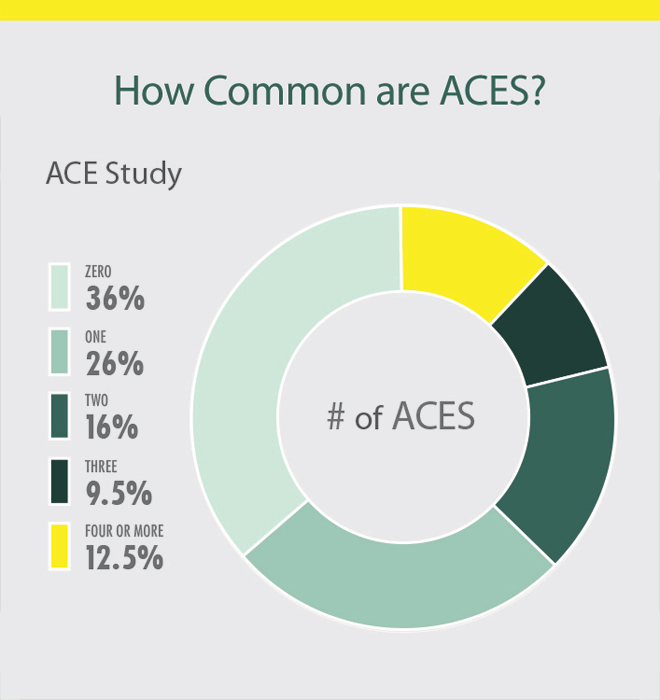One of the biggest changes happening in mental health counseling in the last twenty years that has started to change the landscape of counseling is a study that was conducted in 1995 and 1997 by Kaiser Permanente and now has the backed of the Centers for Disease Control and Prevention. It’s called the Adverse Childhood Experience study or ACE study and looks at how childhood abuse and neglect, as well as household challenges, impact an individual’s future. This does not just equate to the future of the individual’s mental health, but their academic performance, if they struggle with criminal conduct and substance misuse, career performance, impact on their medical, social, and developmental impairment, as well as lessen their quality and quantity of life.
Here’s a quick video about the ACE study.
What Is Your ACE Score?
If you are interested in taking the ACE test as an adult, working with your congregation or community, or wanting to coordinate with counseling agencies in your area, you can take the ACE test online. It’s 10 yes/no questions, it will take you 2 minutes tops. When you are done, count up how many times you said yes.
Most people will have a score of less than 4, over half of the people surveyed getting a zero or one.

This does not just equate to the future of the individual’s mental health, but their academic performance, if they struggle with criminal conduct and substance misuse, career performance, impact on their medical, social, and developmental impairment, as well as lessen their quality and quantity of life.
If you want to know more about it, watch the TED talk below from Pediatrician Nadine Burke Harris about what happens when you start to score at a 4 or more. Also, check out this article by Dr. Steve Grcevich on KeyMinistry.org about further details.
What Does This Mean For The Church?
I’m going to write an article next month for KeyMinistry.org on intentional steps that senior and youth pastors can take with their congregation to address this new insight. But the short of it is, we need to be more intentional with serving our community. As the CDC points out:
ACEs are preventable. Creating and sustaining safe, stable, nurturing relationships and environments for all children and families can prevent ACEs and help all children reach their full potential.
https://www.cdc.gov/violenceprevention/childabuseandneglect/aces/fastfact.html
What is your church doing to serve the community? It starts with feeding the homeless on Thanksgiving and Christmas and providing a safe, open place to worship, but it’s so much more than that.
What are you doing in the following areas?
- Strengthen economic supports to family
- Promote social norms that protect against violence and adversity
- Ensure a strong start for children
- Teach life and social skills
- Provide safe mentoring and programming
- Offer support for additional treatment and resources.
- Reduce stigma, promote awareness, nurture relationships, and improve the responsibilities of families.
We’d actually love to know what your church is or plans to do, sound off in the comments on how you are serving your community.
![Preventing Adverse Childhood Experiences [Videos]](https://churchandmentalhealth.com/wp-content/uploads/2020/01/Preventing-Adverse-Childhood-Experiences-880x360.png)